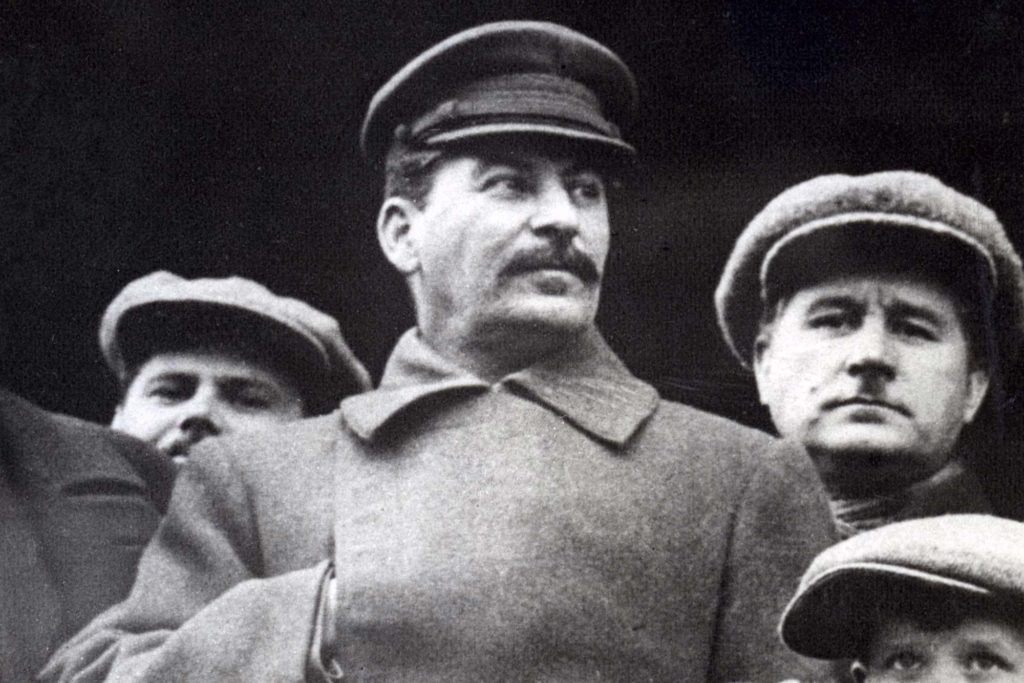The-Vagabond, Getty Images
Gill Bennett was Chief Historian of the Foreign and Commonwealth Office from 1995 to 2005.
More than a century has passed since the Bolshevik Revolution in Russia in 1917; seventy years since the end of the Second World War; twenty-five since the end of the Cold War; yet arguments continue as to which form of political extremism, communism or fascism, has been responsible for a greater number of deaths.
The numbers themselves are disputed, muddied by distinctions between deaths in war and peace, between military and civilians, between those killed and those who died as a result of disease, famine or forced migration. Since the idea of mass murder is both sensational and shocking, media coverage inclines to big numbers and broad accusations1. Often the numbers are so large it is hard for an individual to process or relate them to events. Generations with no personal or family memory of global war can find it particularly hard to put these statistics into context2.

Some argue that while the crimes perpetrated under fascism, especially in the form of National Socialism (Nazism) under Adolf Hitler, have been documented in detail, the same attention has not been given to crimes committed under communism. This argument can lead to a sterile wrangle over doubtful numbers, and may not be the most helpful way of comparing crimes attributed to fascism or communism. As Timothy Snyder wrote in his thoughtful analysis ‘Hitler vs Stalin: Who Killed More?’ the question raises issues of quality as well as quantity, and is much more complex than it may seem3. It is more illuminating to consider why murders committed by the extreme left or right tend to be talked and written about differently.
Thinking about the past: continuity and change
In the early 21st century it is more common for certain ideological assumptions to be rejected by a majority of people in democratic societies, than it is for them to be widely accepted. Both in Europe and the USA, for example, the idea of glorifying Nazi ideas of racial purity, with their evocation of the Holocaust, provokes widespread abhorrence. Even though Nazism was discredited with Hitler’s death in 1945, it retains the capacity to inspire rejection and inflame passions, and the equation of fascism with mass murder is potent. There have been many examples of post-war ethnic cleansing and genocide, from the Balkans to the Middle East to Rwanda. Though the causes of these terrible episodes are complex, the perception of a link with the Holocaust remains in the minds of many onlookers, even if not in the minds of those most closely involved. Similarly, the rise of right-wing nationalist or populist parties in supposedly democratic states causes unease and apprehension, and even if they achieve power they are very unlikely to call themselves fascists, let alone Nazis.
By contrast, the ideology, or perhaps more accurately the ideals, of communism retain the capacity for positive inspiration. This is most obviously true in Communist regimes like the People’s Republic of China, formed in 1949. Although the Soviet Union is widely thought of as the prototype of communist rule, the Chinese revolution was more ambitious and enduring than its Soviet counterpart, and more people lived – and still live – under communist states in East Asia than they ever did in post-war Europe.4 In the Soviet Union, Stalin’s economic policies, purges and deliberate terror campaigns between 1923 and 1953 led to millions of deaths (the numbers are disputed). During the Great Leap Forward under Mao Zedong from 1958 to 1962, an estimated 45 million people perished in China from starvation or overwork; in Cambodia, over 20% of the population were killed or died under the Khmer Rouge in the 1970s.

 Main Edition
Main Edition US
US FR
FR






Join the discussion
Join like minded readers that support our journalism by becoming a paid subscriber
To join the discussion in the comments, become a paid subscriber.
Join like minded readers that support our journalism, read unlimited articles and enjoy other subscriber-only benefits.
SubscribeConsider Lebanon….